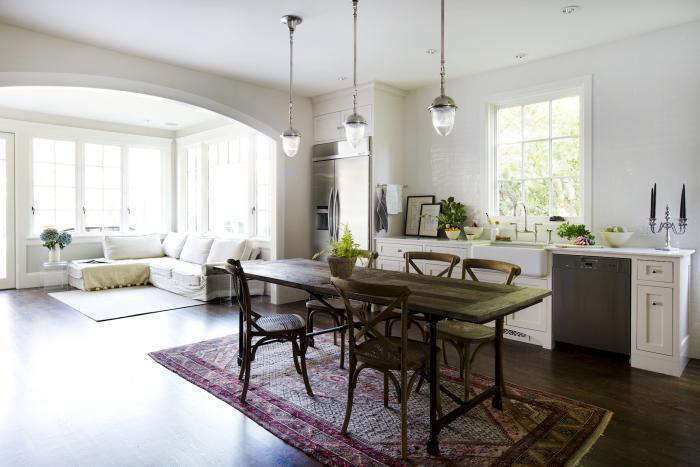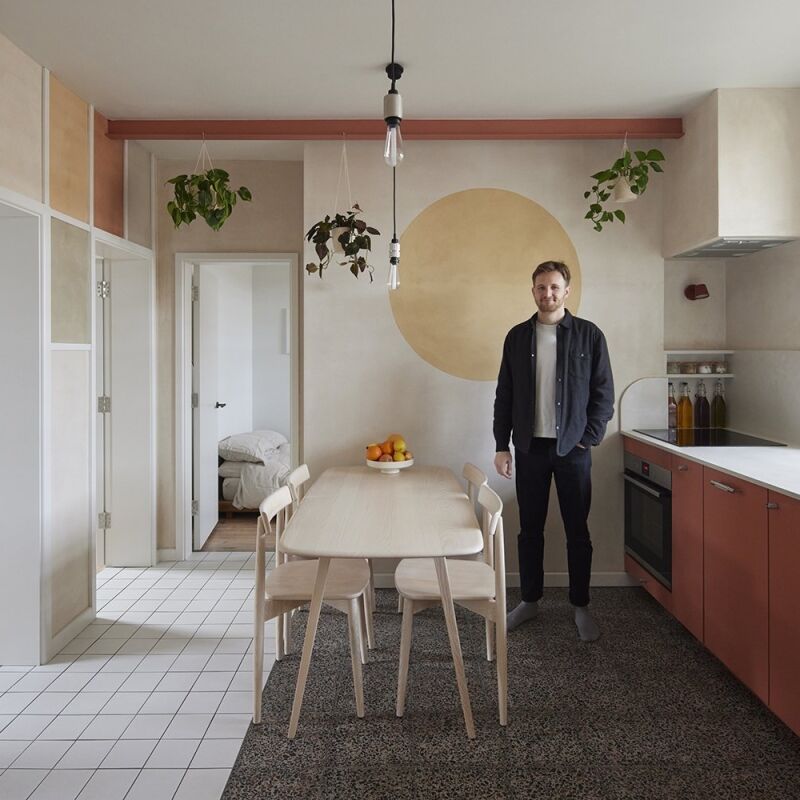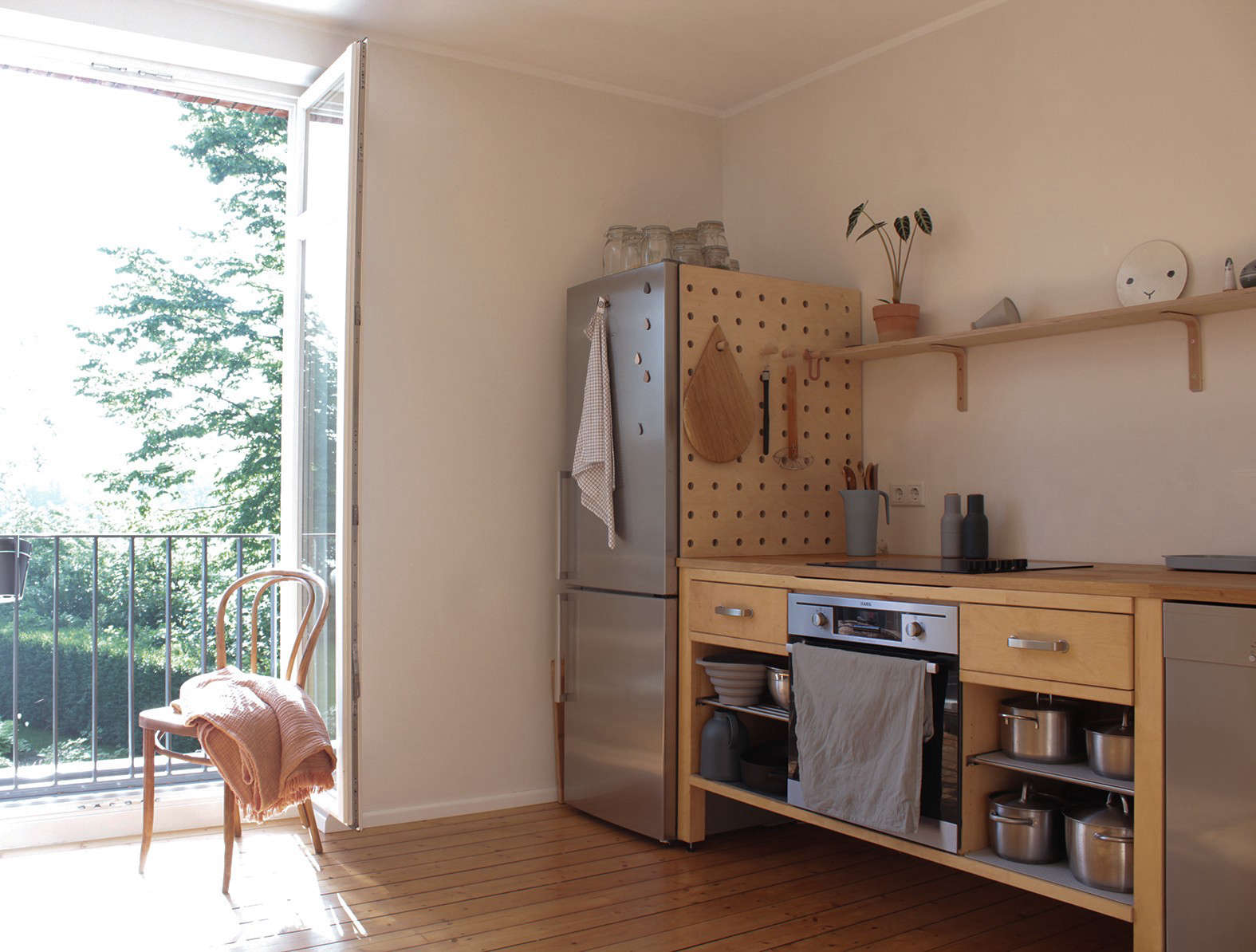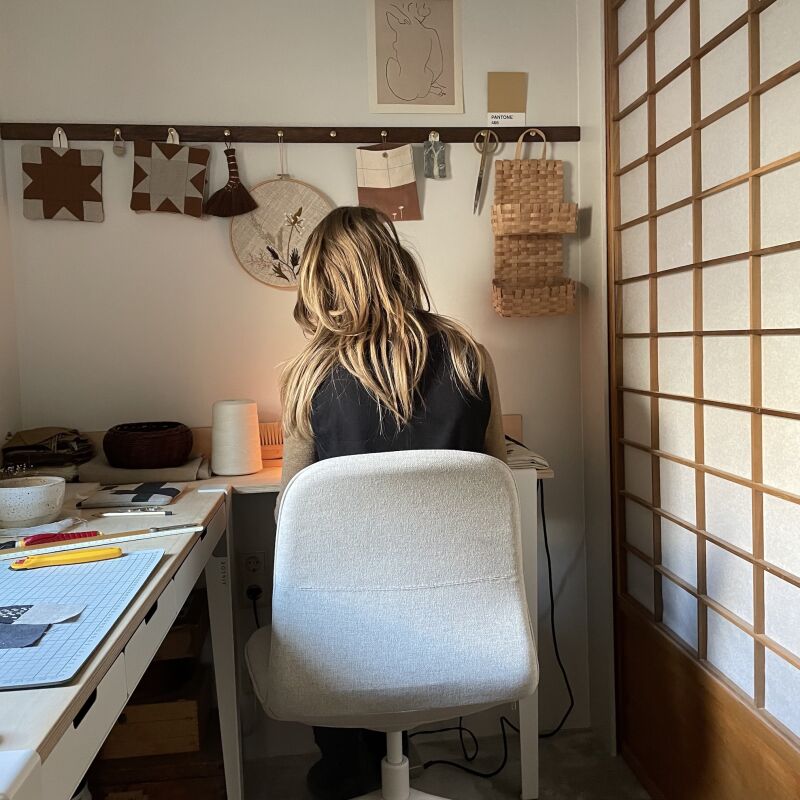The day we finally moved into our remodeled house–after the city inspector had tromped through with a picky checklist and the contractors had hauled away their debris mountain and the plumber had been called back twice to coax the hot water heater to actually produce hot water–was one of the happiest I remember. I would put it right up there with the morning I got married and the day after, when I woke up in Italy and realized it was no longer my problem that we had run low on quiche at the wedding.
The house was so perfect, with its glossy dark floors and creamy marble counter tops and sparkly glass doorknobs, that it felt like we were moving into a life-sized dollhouse. Even the last carpenter, who was still screwing in kitchen knobs as the movers unfurled a paper floor runner, was impressed. “This place turned out a lot better than I expected it to three months ago,” he said.
The beauty of a remodel is you get to re-imagine your house. It’s your chance to right all the wrongs and make it perfect. But then after you move into the perfect house, you may start noticing–little by little–that there are new things wrong. Little things. Picky problems that could have been avoided if only you’d paid a tiny bit more attention during the actual remodel.
Nine months later, for example, I already have a list of things I’d like to change. Not a long list, mind you, or an urgent list, because my house is pretty wonderful. But the things on the list bug me for the simple reason that they exist. There should not be a list. Sometimes I sit outdoors on my beautiful new bluestone terrace, for instance, and I start to get irritated because there’s no flower bed between the bluestone and the house. The pavers run right up to the wall. It looks stark. I think to myself, what idiot designed this? And the answer is me.
Shouldn’t I have gotten everything right the first time, when I was throwing around money like a Mrs. Rockefeller? Maybe that’s asking too much. But I made certain mistakes that were avoidable, and I’m sharing them here in case you’re about to embark on–or are in the middle of–your own remodel. Here are ten ways to avoid feeling, after a few months, as if your redo needs a redo:
Do you have a remodeling tip people should know? If so, please add it to the comments section below.
Photographs by Michelle Slatalla except where noted.

1. Do not install a marble backsplash behind your stove.
Yes, a marble slab is the most beautiful, creamy looking surface in the world. Yes, the sunlight glints on mine (Above) and makes me happy every time I look at it. Yes, I sometimes press my hand against it for the pure pleasure of feeling the cool smoothness. But.
Marble is a very porous surface–perhaps Swiss cheese has more holes, but I wouldn’t swear to it–and I am constantly worrying about grease stains. (For the complete story of the nasty nicotine-yellow plume that suddenly appeared on it one morning, see My Dirty Secret: How to Clean a Marble Backsplash.)
If you cook a lot (as my husband and I do) and you roast things at high heat (as we do) and smoke wafts up through the vents (as at our house), then a marble backsplash is simply too much work to keep clean.
We have sealed it. And sealed it. And sealed it. We have poulticed off stains. And poulticed off more stains. And poulticed off even more stains. And now I am at the point where, if I am considering slathering a chicken in butter and roasting it at 425 degrees, I first do a mental calculation: is it worth the risk to the marble backsplash? This is not how you want to decide what to eat for dinner. Nor do you want to resort to taping up a sheet of tinfoil behind the stove–who am I, my grandmother? Am I going to start calling margarine “oleo” next?–every tme you cook.
We originally had planned to tile the backsplash, which by the way would have looked fine.

Above: Photograph by Mimi Giboin.
2. Don’t skimp on the appliances. Get the ones you really want even if they cost more.
After my husband and I did our appliance research, we concluded that it would cost too much money to spring for a Sub Zero refrigerator. We agreed that the Sub Zero was the best looking refrigerator and that it was built like a tank and that if we had all the money in the world, we’d get one. But we didn’t have all the money in the world.
So even though all our friends who had remodeled swore by their Sub Zeros–Julie has one, and my friend Joan has one, and even my friend Rahel (a woman so thrifty that she doesn’t bristle at being described as “cheap”) has one–my husband and I got a built in Kitchen Aid (Above) with an ice dispenser (for my husband, who loves gadgets and the idea that you can just walk up to the thing and press a glass against a pad and get ice).
And guess what? This is the only appliance that has given us trouble. Twice we’ve had a repairman to the house to fix the refrigerator. The ice dispenser doesn’t work right, and then the ice freezes up in the chute, and then the motor or the condenser burns out and the whole front of the thing has to be removed to expose a gaping cavity of wires and darkness while the repairman tries to figure it out. And then parts have to be ordered.
Is this problem going to recur every few months for the life of the refrigerator? Or will we just give up on the ice dispenser thing–as so many people do–and pretend that it doesn’t exist?
3. Pay attention to hardware details.
I was living in New York while my house was being renovated in California, so when my friend Stephanie (who is a designer) called me from the window showroom to say she didn’t think I was going to like the crank that came with a particular casement window that was going to be installed above the kitchen sink, I said, “Hmmm. Doesn’t sound like a big deal.” I wasn’t really listening because I was typing a blog post or something.
Now I stand in front of that casement window every day, doing dishes, and I hate the crank. It is a brown plastic-y thing that’s practically at eye level. It’s so ugly that every time I take a photo of the otherwise beautiful sink wall–white tile, gooseneck faucet, green view through a casement window–I Photoshop out the crank.
Maybe the crank could be replaced? Who knows? It looks like a sort of complicated crank thing. Who has time to look up the model number of the window and then call the window company to ask about it? And if the window company says “No. No replacement for you!” then who has time to find a non-standard replacement part that would probably violate the warranty but at least not be ugly plastic-y brown?

No. 4: Make sure your bathrooms have natural light.
Our master bathroom (Above) has a big window, and lovely sunlight. Our small guest bathroom, however, is a little box with a high ceiling and no windows. It feels oppressive in there, the lack of light.
Sometimes the layout of your house dictates an “internal’ bathroom, surrounded on all sides by other rooms instead of by an exterior wall. This is the case at my house. But I wish, in retrospect, that I had installed a skylight.
For six more mistakes to avoid during a remodel, see the rest of this story at Gardenista.
For more, see Rehab Diaries: Michelle’s Mill Valley Kitchen Redo.




Have a Question or Comment About This Post?
Join the conversation (16)